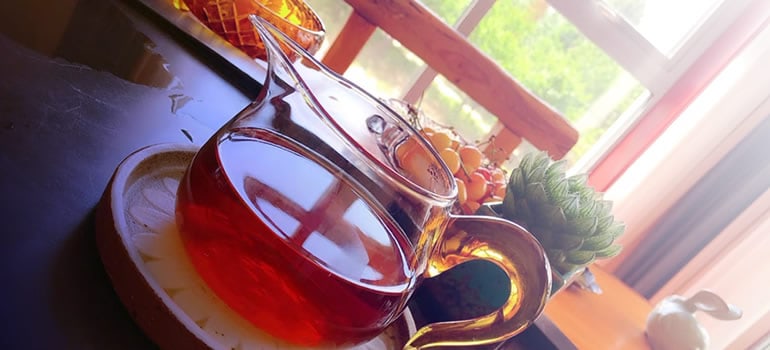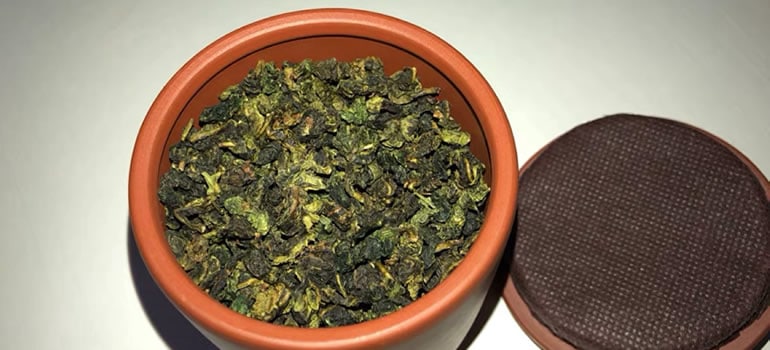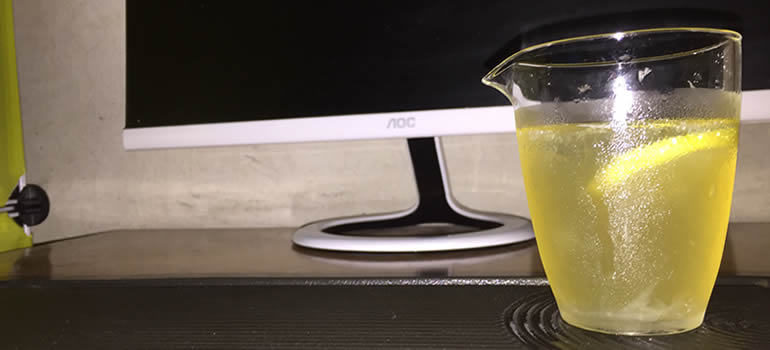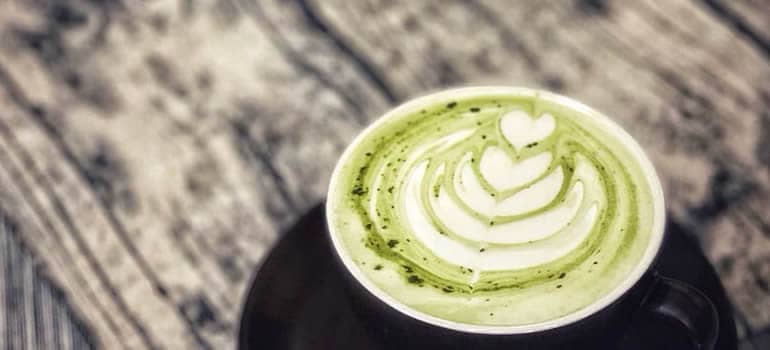Tea is the second most popularly consumed beverage in the world.
What makes tea so popular is that it is not only flavorful but also super healthy, and best of all, easy to prepare.
The instructions for tea preparation are super easy. However, you will inadvertently see that one of the steps is to steep your tea.
I have found that this term may confuse a lot of people.
So what does it mean to steep tea? Steeping tea means to soak the loose tea leaves or the tea bag in the water. Steeping is an important process in the preparation of tea as it allows for the various antioxidants and flavors to leach into the water.
However, steeping tea and preparing the perfect cup of tea can prove to be more complicated than it may seem on the surface. Various factors will ultimately determine how good of a cup of tea you will end up with.
So let’s take a look at how steeping works.
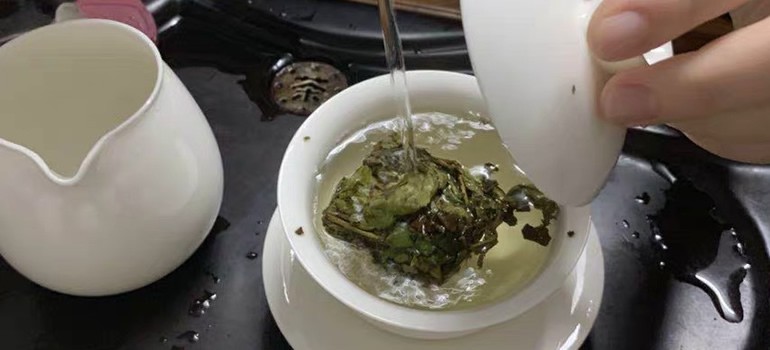
What Does It Mean to Steep Tea?
Tea is thought to be one of the healthiest beverages. It is loved by many, not just because of how it tastes, but because it is connected with many different health benefits.
Steeping is part of the preparation process, and it refers to the time the loose tea leaves or the tea bag is left to soak in hot water.
1. Why Do People Steep Tea?
Steeping tea is usually done by soaking the tea leaves (or the tea bag) in boiling water or heated water.
It was discovered that by leaving the tea in the water for a specific amount of time, we could extract and infuse the water infused with the different nutrients and bioactive substances that are contained in the leaves.
Hot or boiling water is preferred because this speeds up the process and it is more effective than cold water.
2. Is Steeping and Brewing Tea the Same Thing?
Steeping and brewing may seem like the same concept, and because of that, sometimes it is very easy to confuse, which is which.
Brewing is called the whole process of making tea. While steeping is part of this process or part of the brewing.
How Does Steeping Affect Your Tea?
Steeping tea will affect your tea in several ways.
1. Do Different Types of Tea Need a Different Amount of Steeping?
Different teas will need different steeping time to get the best results.
One study published in the Journal of Food Science set out to find out if the steeping time and the temperature of the water will affect the antioxidant content in white, black, and green teas. (1)
Scientist compared the results for each tea in four different categories. They steeped the tea in:
- Hot water for two hours
- Hot water for five minutes.
- Cold water for two hours
- Cold water for five minutes.
The longer white tea was left to steep, the higher the antioxidant content was.
Black tea had the best amount antioxidants when it was steeped in hot water for two minutes. Longer steeping times resulted in lower antioxidant content.
Green tea had the best antioxidant content after being left to steep for two hours in cold water.
White and green tea had more antioxidants in general than black tea.
2. Health Effects of Steeping Tea
Of course, one of the main reasons a lot of people drink tea is because it is healthy. So how does steeping affect the health benefits of tea?
The health aspects of tea come from the antioxidant content it has. Most of the teas contain caffeine, catechins, and L-theanine.
- Catechin is an antioxidant that prevents the creation of free radicals, and it reduces cell damage, aging, and more.
- L-theanine is an amino acid that has a positive effect on reducing anxiety and stress. It is also connected with improved brain functions.
- Caffeine is a stimulant that makes us feel less tired and more alert. Caffeine has been associated with improved brain function, mood, memory, and more.
3. Flavor Effects of Steeping Tea
If you don’t remove the tea leaves or the tea bag with time, the tea will start to taste really bitter.
If you just want to enjoy a nice a flavorful cup of tea, and you don’t want to worry about antioxidants or caffeine content, then the good news is that you don’t need to steep your tea for a long time.
The favor and the taste of the tea are among the first things that are released in the water. This means that you can steep your tea for about 1 to 3 minutes will be more than enough.
Steeping your tea for longer will make it more bitter. If bitterness is what you are after you can leave the tea leaves or the tea bag in the water to steep for a few extra minutes.
There is one caveat here, and it comes in the face of herbal teas. If you are preparing an herbal tea, you can generally steep it for longer without it getting as bitter as green teas will get for example.
4. Effects of Steeping on Caffeine Content
A lot of people drink tea as an energy booster.
Of course, it cannot be compared to a proper cup of coffee, but it can still be a viable option.
According to the data from a study that was published in the Journal of Analytical Toxicology (2)
The best caffeine content was observed with black teas that were steeped for 3 to 5 minutes.
What Is the Best Way to Steep Tea?
As we just saw the way you brew and steep your tea can have a significant impact on the qualities of your tea.
1. Steeping Time
Just letting your loose tea leaves or tea bag steep for a very brief period of time in hot water is going to lead to only a fraction of the antioxidants and the other bioactive substances to get infused in the water.
One study examined the effects of steeping green tea bag for 2 to 3 minutes, which is the manufacturers recommended time. This led to only 62% of the catechins, 76% of the caffeine, and 80% of the theanine to be extracted. (3)
This is what we saw happen in the other studies where the steeping process typically lasted at least 3 minutes.
2. The pH of the Water
Another study wanted to find out if the pH of the water would have an actual effect on the extraction process of green tea.
What was discovered was quite interesting.
The most optimal extraction and have the highest amount of caffeine, theanine, and catechins occurred with water that was acidic during brewing – between 3 and 5.3 pH. (4)
An easy way to make water more acidic is achieved by squeezing a lemon in the water during or before brewing it.
3. Microwaving
Microwaves have always been a very controversial topic. However, they certainly do have some nice things going on for them.
One study examined the effect of microwaving tea for 1 minute at medium power after it has been boiled for 30 seconds.
Compared to the percentages we saw above the extraction process improved and was much higher: 92% for catechins 80% for caffeine, and theanine remained the same. (5)
4. Loose Tea Leaves vs. Tea Bags
The popular opinion is that loose tea leaves are unparalleled when it comes to freshens, flavor, antioxidant content, and overall quality.
In one study, scientists found out that the size and the way the tea bag was made can influence the extraction process. (6) Also, since the tea leaves are cut into smaller parts, it can be argued that the extraction of antioxidants can be much easier.
One downside to the loose leaf tea is that if it is of lower quality, it may contain higher amounts of stems that do not necessarily have the antioxidant content tea leaves have.
Not all teas are created equal. Instant teas and other prepacked products may have very little or no antioxidants at all. At the same time, they can contain high amounts of sugar or artificial sweeteners.
Herbal and fruit teas, should also be noted, don’t necessarily have leaves so their antioxidant properties may vary than other types of teas like green, white and black.
Frequently Asked Questions
Do you remove the tea bag after steeping?
After steeping the tea bag should be removed. If left in the tea, this will lead to an increase in the bitterness, stronger flavor, and a darker color of the tea. Eventually, the bitterness may overpower the flavor of the tea, making it unpleasant.
Can you steep tea twice?
Every type of tea can be steeped twice and even three times. Teas that have stronger flavor will do better even after being re-steeped several times, while others may lose their potency after a single resteep. Resteeping should be longer than the normal steeping time.
Does milk stop the tea from steeping?
Milk can affect the steeping process. Steeping is temperature-dependent. Cold milk will alter the taste and the extraction process. To maintain the steeping process running, you can heat the milk for a brief period.

